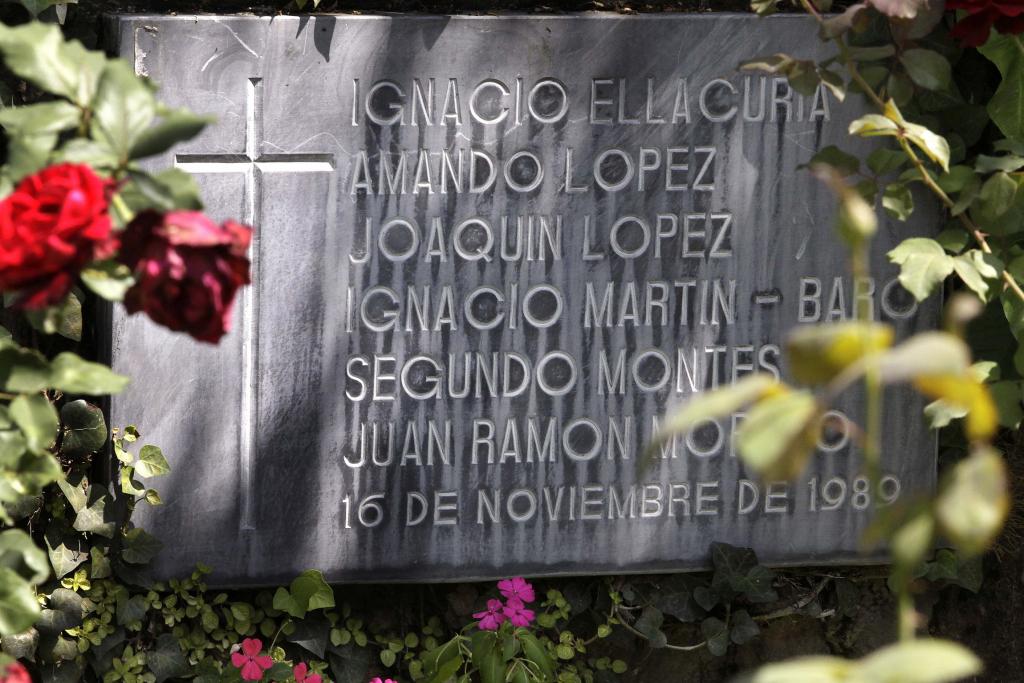24 March 2014, Oscar Romero Day, marks the 34th Anniversary of the Archbishop’s assassination during a visit to a hospital in San Salvador. His ministry was one of struggle for justice, which lives on today in the lives of the Salvadoran people.
Fr Joe Ryan - Parish Priest of St John Vianney, West Green and Chair of the Diocesan Justice and Peace Commission – reflects on his recent pilgrimage to El Salvador and the people there who gave their lives preaching the Gospel during those years. Fr Joe’s talk is a condensed version of the keynote speech at the Justice and Peace annual Open Meeting.
The Romero Trust Pilgrimage to El Salvador was a privilege to undertake, in the footsteps of Archbishop Oscar Romero and many others whose lives were taken. Here I focus especially on the life and death of Fr Rutilio Grande, Parish Priest of Agulares / El Paisnal an agricultural district of El Salvador and the University of Central America Martyrs.
As you read these stories keep in mind the tragic events we are hearing about in our media today: news from the Central African Republic; Congo; Colombia; Syria; Southern Sudan; Gaza; Sri Lanka, Turkey and the many other troubled areas in our world. We cannot forget people here in the UK who are suffering too, but in a different way.
Fr Rutilio Grande
As a priest he had been very active in supporting the members of the local community, many of whom lost their land as powerful landlords extended their boundaries to grow coffee. A simple statistic says it all: “A major landowner had an income equivalent to that of almost 7,000 families …”
As a result of this unjust situation, the Agrarian Reform Congress of 1970 was introduced; and those in power were not happy.
Fr Rutilio, supported by students and staff of the UCA (University of Central America) helped organise the local population, many of whom worked the land for minimal wages. There were workshops, self-help schemes, demonstrations and a general attempt to better the lives of the people.
This pastoral activity did not go unnoticed by those in authority and so these communities became a target for military activity. In March 1977 Fr Rutilio Grande was murdered on his way to a parish celebration along with a 72 year-old man, Manuel Solorzano and a young altar server, Nelson Rutilio Lemus.
Fr Rutilio was the MC at Archbishop Romero’s installation ceremony just a short time before, his death had a profound effect on Archbishop Oscar; it was a step too far that one of his own priests should be murdered.
In spite of military opposition, on the Sunday of Fr Rutilio’s funeral, only one Mass was celebrated in San Salvador diocese. The Archbishop wanted to make a gesture and invited all the people to attend. Fr Rutilio’s death was a “wake up call” for Oscar Romero and consolidation in the minds of many for the “option for the poor”. For others it had the opposite effect – “we must get rid of those who are organising communities and questioning the violation of human rights”.
It was at this time that ferocious opposition emerged in the country – all who tried to serve the course of justice were branded as communist, subversive or not respecting the fatherland. The slogan went: “Be a patriot, kill a priest”.
From this time Archbishop Romero became even more outspoken, defending the rights of the poor and challenging those who gave orders and carried out atrocities, humiliation and murder.
The UCA Martyrs:
The terrible civil war in El Salvador continued throughout the 1980s and by 1989 tens of thousands of people had been murdered or had disappeared with very few being brought to trial.
The Jesuit Community had dedicated its efforts to El Salvador. The University of Central America (UCA) was and is run by the Jesuits. Everybody, rich or poor, wants to be educated by the Jesuits. But when the UCA education system began to embrace “options for the poor” and real gospel values – here trouble began. In speaking out for the voiceless poor the Jesuits were labelled as Marxists disloyal to the Fatherland. Especially marked out was Fr Ignatio Ellacuria because of his negotiations for peace during the civil war. He negotiated with local government, the army, FMLN and internationally – an outstanding bridge builder.
But we know what happens to bridges in time of war – they are destroyed. Many times before 1989 bombs were exploded inside and outside UCA buildings, many army raids were carried out – but nothing subversive, either guerrillas or propaganda were ever found – yet the Jesuits were deemed the communist villains.
They had to be murdered – starting with Fr Ignatio Ellacuria – “and leave no witnesses”.
On the night 16 November 1989 six Jesuit priests, their housekeeper and her daughter were brutally murdered. It was a massacre of the highest proportion – their brains were blown out to indicate the removal of all intelligence from those who might lead, guide and support any future resistance.
Even today, 25 years later, there remains much unfinished business in El Salvador. Tens of thousands of people died or ‘disappeared’ during that era, many of whose families have not received the recognition, information or justice they seek. I hope these words awaken in us the energy to do something to help the voiceless. Where do we begin?
If you would like to find out more about the ways to get involved with the work of Justice and Peace visit: www.rcdow.org.uk/justiceandpeace
Tony Sheen, The CAFOD Westminster Diocesan manager, has written a blog on the recent pilgrimage to El Salavador. www.cafodwestminster.wordpress.com




